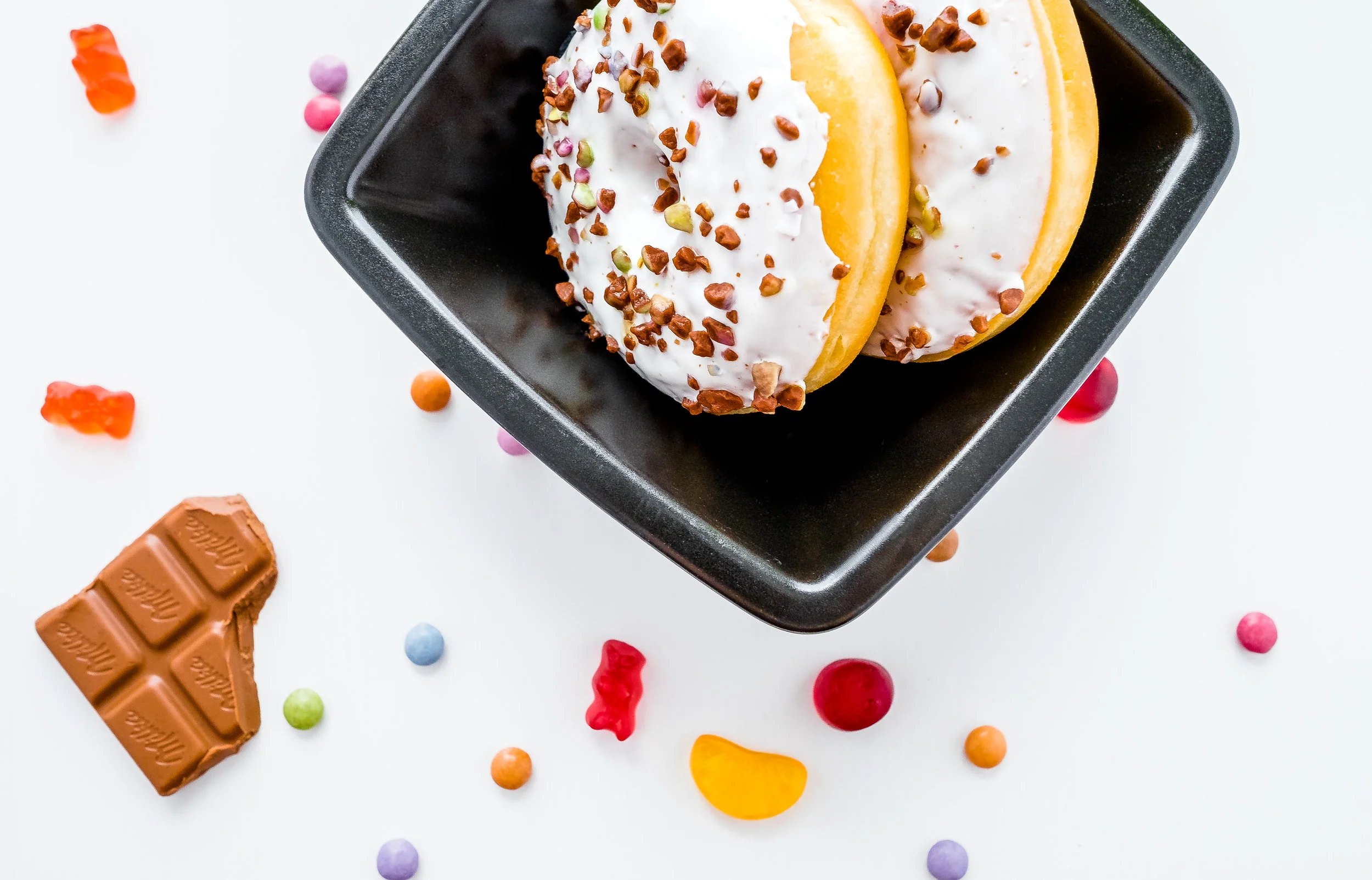I can vividly remember the moment I became aware of the fact I had been consuming two Krispy Kreme donuts without even realising it.
No, it wasn’t when I awoke from a slumber covered in icing and sweet, doughy crumbs (I swear that only happened once…)
No, I don’t have split personality syndrome where my “other” self sabotages my six pack by consuming copious amounts of delicious “junk” type foods. Although that would make an excellent TV show.
Perhaps my girlfriend was a “feeder” and was secretly using an icing syringe to inject Krispy Kreme into my mouth slowly while I slept?
I asked...she wasn't.
When then?
It was the first day I accurately tracked my food intake… Yep.
And the worst part...
I wasn’t even literally eating the donuts! It was figuratively. I was subconsciously consuming the equivalent of 2 krispy kreme donuts a day…
So I was eating my cake but not having it??? Can it get much worse?
At the time I went by the belief that as long as I ate the “right” foods I would lose weight. That making the right food choices was much more important than the amount I was eating. I still see this with many new clients. I don't blame us. The majority of weight loss gurus, fad diet books, celebrities and trainers tell us that calories don't matter. That food choice is what counts.
While food choice is definitely important, just eating “healthy” foods while not paying attention to the amounts of food you eat, often isn’t enough to guarantee you reaching your goals. In fact, when we focus purely on food quality we often see the “halo effect” of health foods. That we tend to consume more of a food if it’s marketed or advertised as “healthy” or even consume more of food later in the day because of the great job we did earlier in the day choosing that “raw bliss ball” over a “junk” food option.
And while this got me to a certain point, I was never truly able to achieve the level of body composition I felt I was capable of. Plus I missed many of the foods that weren’t “allowed”.
Anyway, back to the day I accurately tracked my intake. 400 calories over my target!!
Underestimating how much I was consuming was single handedly the reason I wasn’t seeing the results I wanted!
The vast majority of people underestimate how much they’re eating.
We lack calorie awareness, AKA we have no clue how much we’re consuming on a day to day basis.
While our eyes evolved to be great at picking up movement unfortunately they’re not great at estimating the energy content of the foods we eat.
Think I’m exaggerating? Check it.
Lichtman and colleagues found that on average subjects underestimated their energy intake by 47% and overestimated their energy expenditure by 51%!!
This would mean that if a subject believed they were consuming 1,800 calories a day, they may have actually been consuming an extra 845 calories per day! Easily enough to offset any deficit they believed they were in and most likely gain weight if it was consistent.
Even dieticians, while generally slightly better then the standard population, tend to still underestimate their intake by 200+ calories a day.
There are plenty of studies on men, women, adolescents, kids, lean, obese and all of them show that we’re terrible at estimating how much we each. Hell, even when given financial incentives humans are terrible at reporting their intake accurately.
The message is clear. We suck at estimating our intake. And even if you happen to be one of the rare few with a calculator for a brain, it’s easy to forget about the "snacks" through the day that fly under the radar such as the coffees, the Caramello Koala your co-worker guilt sold you to raise money for his flip cup team (wait a minute...), the few nuts you grab every time you enter or leave the kitchen or the chicken you ate while prepping dinner.
It all adds up.
This is a big deal if your goal is fat loss related. Calories undeniably count. You’re not losing fat if you’re not in a calorie deficit consistently.
So what can we do?
The same as me and many others.
We measure and track our intake. Treat it like an experiment and collect solid data. Spend some time figuring out just how much energy you're consuming.
I promise you it may be the best move you make in regards to your goals you ever make.
In part 2 I'm going to tell you why tracking your intake may be the best tool you can use for long term fat loss and how to set up your diet in order to succeed.
Enjoyed this article?
Want to be able to see through the bullshit nutrition information that’s flooding your feed and feel confident in your knowledge?
Sign up to my No B.S Nutrition emails, where I’ll teach you more about how to actually eat and train to lose fat, build muscle and make anyone who sees you naked spill their drink (I take no responsibility for coffee stains).


